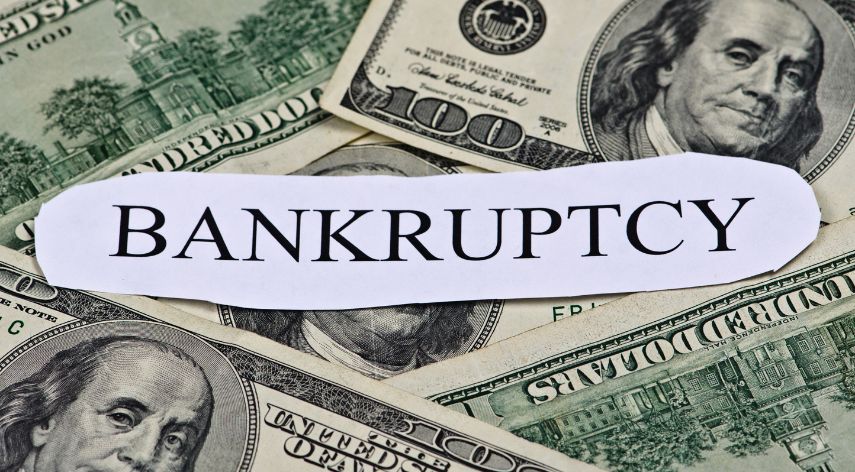5 Tips To Recover From Bankruptcy

Much like any skill you master, financial stability sometimes requires a bit of practice. In the world of finances, occasional missteps may lead to financial hardship or even bankruptcy. Did you know that bankruptcy filings including all chapters increased by 21% in November 2022? The total filings for that month is 31,187.
According to bankruptcy lawyers from Steele Law Firm, a knowledgeable attorney can facilitate the discharge of specific debts and help grant you a fresh start. He or she can employ strategies to safeguard valuable assets like homes and cars.
In this article, we provide you with five practical steps to rebuild your financial life after bankruptcy. Use these steps as your guide to a future filled with financial resilience and security.
Remember that recovering from bankruptcy takes time and effort, but with determination and the right strategies, you can rebuild your financial life and achieve long-term success.
Table of Contents
ToggleCreating a Realistic Budget
Your first step to financial recovery begins with creating a realistic budget. A budget serves as your roadmap to financial stability, it helps to visualize income and expenses in a clear and organized manner.
- Start by gathering all your financial information, such as bank statements, bills, and pay stubs. Take note of your monthly income and fixed expenses, like rent and utilities.
- Then, categorize your variable expenses, such as groceries and entertainment. Analyze your spending habits and identify areas where you can cut back.
- Set realistic goals for saving and debt repayment. Prioritize essential expenses and allocate a portion of your income towards an emergency fund.
By monitoring your spending habits regularly and setting achievable savings and debt repayment goals, you can gain a clear understanding of your financial situation.
Building an Emergency Fund
Building an emergency fund is your safety net for unexpected expenses or income loss.
Start by setting aside some money each month in an emergency fund to help you bounce back from financial setbacks. Building an emergency fund is crucial to avoid falling back into debt after bankruptcy.
Aim to save three to six months’ worth of living expenses to give yourself a safety net in case of unexpected expenses or a loss of income.
Start small if necessary, even if it’s just a few dollars each week. Every little bit adds up over time.
Consider automating your savings by setting up automatic transfers from your paycheck or checking account to your emergency fund. Make it a priority to contribute to your fund consistently, even if it means cutting back on discretionary spending.
This fund is your lifeline in times of financial uncertainty, so treat it as such.
Rebuilding Your Credit
Take small steps towards financial stability and make smart choices with your money to rebuild your credit.
- Obtain a copy of your credit report and review it for any errors or discrepancies. Dispute any inaccurate information and work with creditors to settle any outstanding debts.
- Consider applying for a secured credit card or becoming an authorized user on someone else’s credit card to start rebuilding your credit history.
- Make sure to pay all bills on time and in full, as this will demonstrate responsible financial behavior.
Keep your credit utilization low by only using a small percentage of your available credit.
Seeking Professional Help
Overwhelmed by the complexities of financial recovery? Reach out to professionals like bankruptcy attorneys and credit counselors.
A bankruptcy attorney or credit counselor can provide expert advice tailored to your specific financial situation. They can help you understand the steps you need to take to improve your credit score and rebuild your financial standing.
These professionals can also negotiate with creditors on your behalf, helping you develop a realistic repayment plan that fits your budget. On top of that, they can educate you on good financial practices, such as budgeting and saving, to prevent future financial difficulties.
Staying Positive and Persistent
Even when things seem tough, remaining optimistic and persevering through the challenges can be instrumental in achieving long-term financial stability.
Remember that recovering from bankruptcy is a process that takes time and effort. Don’t get discouraged if you face setbacks along the way. Stay focused on your goals and believe in your ability to bounce back.
Surround yourself with supportive and encouraging people who can lift you up during difficult times. Develop a mindset of resilience and determination, knowing that every small step you take is bringing you closer to financial recovery.
Stay persistent in your efforts, whether it’s rebuilding your credit, finding new sources of income, or managing your expenses more effectively.
With a positive attitude and unwavering perseverance, you can overcome bankruptcy and create a brighter financial future for yourself.
Conclusion
With the right strategies and commitment, you can recover financially and attain long-term stability. Seeking guidance from professionals can provide you with valuable insights and expert support throughout your journey.
Andrew Barry, a seasoned expert in product reviews, brings a keen eye and insightful analysis to the world of consumer goods. With a passion for evaluating and recommending the best products, he navigates the market to help consumers make informed decisions.
Recommended For You
Spread the loveIn the ever-expanding digital landscape, online trading platforms have become a staple for savvy consumers looking to explore
Spread the loveHave you heard about fiat-to-crypto exchange? One area that continually captures the attention of both seasoned investors and
Spread the loveDo you find tax season overwhelming? You’re not alone. But don’t worry; our article on tax checklist essentials has you






